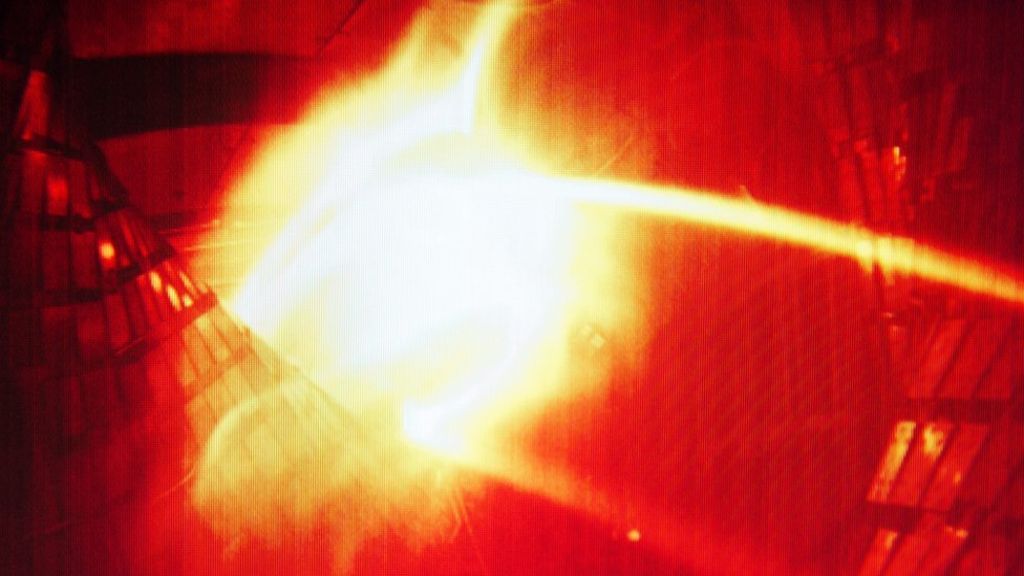A German nuclear fusion experiment has produced a special super-hot gas which scientists hope will eventually lead to clean, cheap energy.
The helium plasma — a cloud of loose, charged particles — lasted just a tenth of a second and was about one million degrees Celsius.
It was hailed as a breakthrough for the Max Planck Institute’s stellarator — a chamber whose design differs from the tokamak fusion devices used elsewhere.
